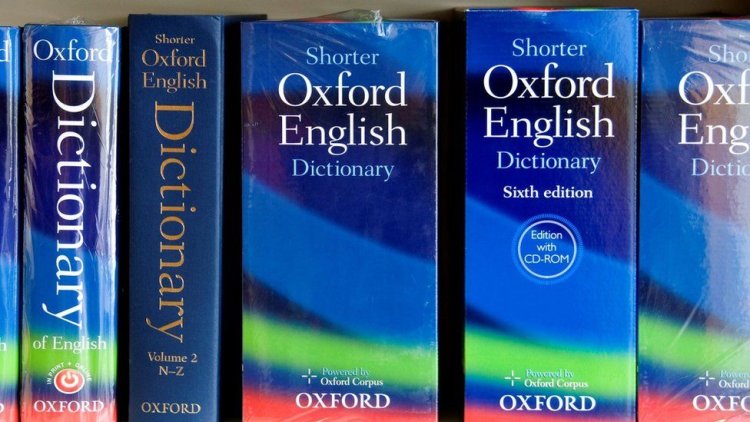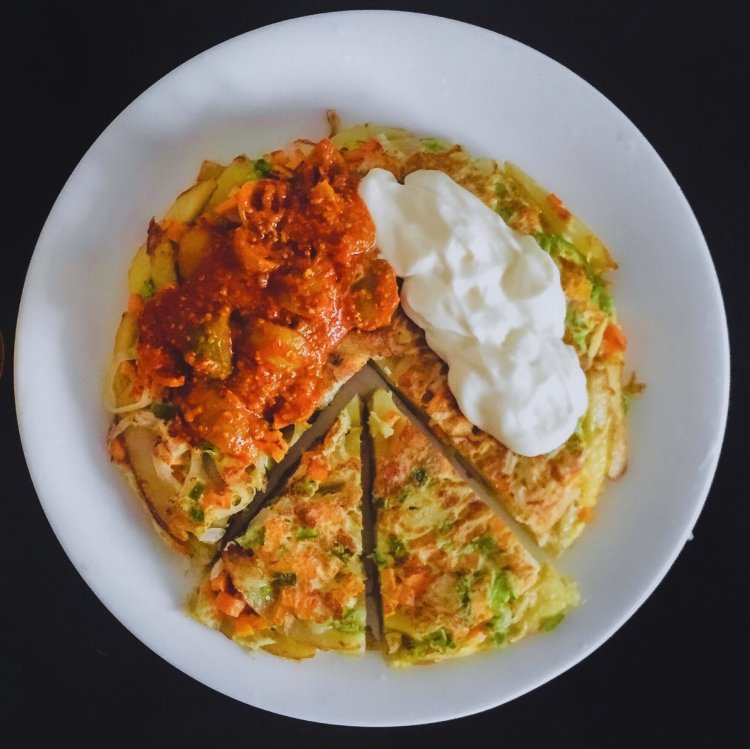Nyama Choma, Uhuru, Sambaza Added To Oxford Dictionary
Some of the words are a mixture of verbs, nouns and adjectives in the dictionary, which is popular among schools worldwide

The Oxford English Dictionary (OED) has included a number of Kenyan words in its vocabulary, as of June 2022.
OED revealed that the words included nyama choma, asante sana, collabo, Uhuru, githeri, busaa, chang'aa, mwananchi, come-we-stay, deskmate, chips mayai, chapo, sambaza, Sheng, buibui and Nyayo were among Kenyan words added.
Some of the words are a mixture of verbs, nouns and adjectives in the dictionary, which is popular among schools worldwide and in countries where British English is commonly spoken.

A plate of chips mayai. /WIKIPEDIA
"There are numerous borrowings from languages of Africa, particularly East Africa, including newly revised words such as benga, boma, duka, harambee, hlonipha, and Uhuru," OED Executive Editor, Eleanor Maier stated.
The OED update includes words classified under the East African English category, which is inclusive of varieties of English spoken in Kenya, Tanzania and Uganda. These three countries share a common Anglophone background despite their different colonial histories.
"Something else that Kenya, Tanzania, and Uganda have in common is their lingua franca, Swahili, and indeed several of the new and revised entries in the East African update are borrowings into English from this language.
"This includes the oldest of the new entries in this batch, jembe, referring to a hoe-shaped hand tool used for digging, which is first attested in an article by British explorer Sir Richard Francis Burton published in the Journal of the Royal Geographical Society in 1860. Over a hundred years later, renowned Kenyan writer and academic Ngũgĩ wa Thiong’o used the same word in his historical novel A Grain of Wheat, first published in 1967," OED Executive Editor (Lexicography): World English Danica Salazar added.
The Oxford English Dictionary is the principal historical dictionary of the English language, published by Oxford University Press.
Other words added by OED to the dictionary include:
- buibui (first attested 1929) – a traditional garment worn by Muslim women in East Africa, typically a long black gown with a black head covering that leaves only the eyes or face exposed.
- kanga (1895) – a type of cotton fabric printed with designs in bright colours, typically in squares or rectangles featuring a border on all four sides, and used especially for women’s clothing; a piece of this fabric, often worn as a shawl or wrap.
- kanzu (1870) – a long, loose-fitting white tunic worn by men.
- shuka (1856) – a long piece of fabric usually worn as a loincloth or used as a bedsheet.
- chapo (1993) – a thin pancake of unleavened wholemeal bread cooked on a griddle.
- jiko (1973) – a type of portable charcoal or wood-burning stove, typically made of metal with a ceramic lining, used for cooking and heating.
- mandazi (1937) – a small cake consisting of sweetened dough fried in oil, usually triangular in shape and typically eaten as a snack or as an accompaniment to other dishes; (as a mass noun) these cakes collectively.
- nyama choma (1980) – roasted or grilled meat.
- sufuria (1891) – a deep metal cooking pot with a flat base.
- banda (1908) – a hut or shed with a thatched roof, used typically as a rest house or shelter for travellers.
- boma (1860) – a barrier formed from thorny branches or wooden stakes, used for defence against attacks by enemies or wild animals; a fence, palisade, or stockade.
- duka (1912) – a small neighbourhood store selling a variety of goods.
- tembe (1860) – a rectangular house with mud walls and a flat roof.
- Asante sana: Used to express gratitude: “thank you very much”
- Collabo: Esp. of musicians: to collaborate; to work together with another or others, or on a project.
- Jembe: A hand tool shaped like a hoe, with a blade set at an (acute) angle to the handle, used for digging, breaking up soil, removing weeds, etc.
- Pressed: That has been subjected to pressure; compacted, flattened
- Sambaza: To send (mobile phone credit) to someone. Hence more generally: to share or send (something).

A woman using her phone. /CAPITAL GROUP
- Sheng: A street language blending Swahili with lexical and grammatical elements from English and other languages, originating as part of the youth subculture of Nairobi but now also used by people of varying ages and social classes in urban communities across Kenya, Uganda, and Tanzania
- Tarmac: To cover with tarmac.
- Unprocedural: That does not follow ordinary or official procedure; irregular, illegal.

 admin
admin 




